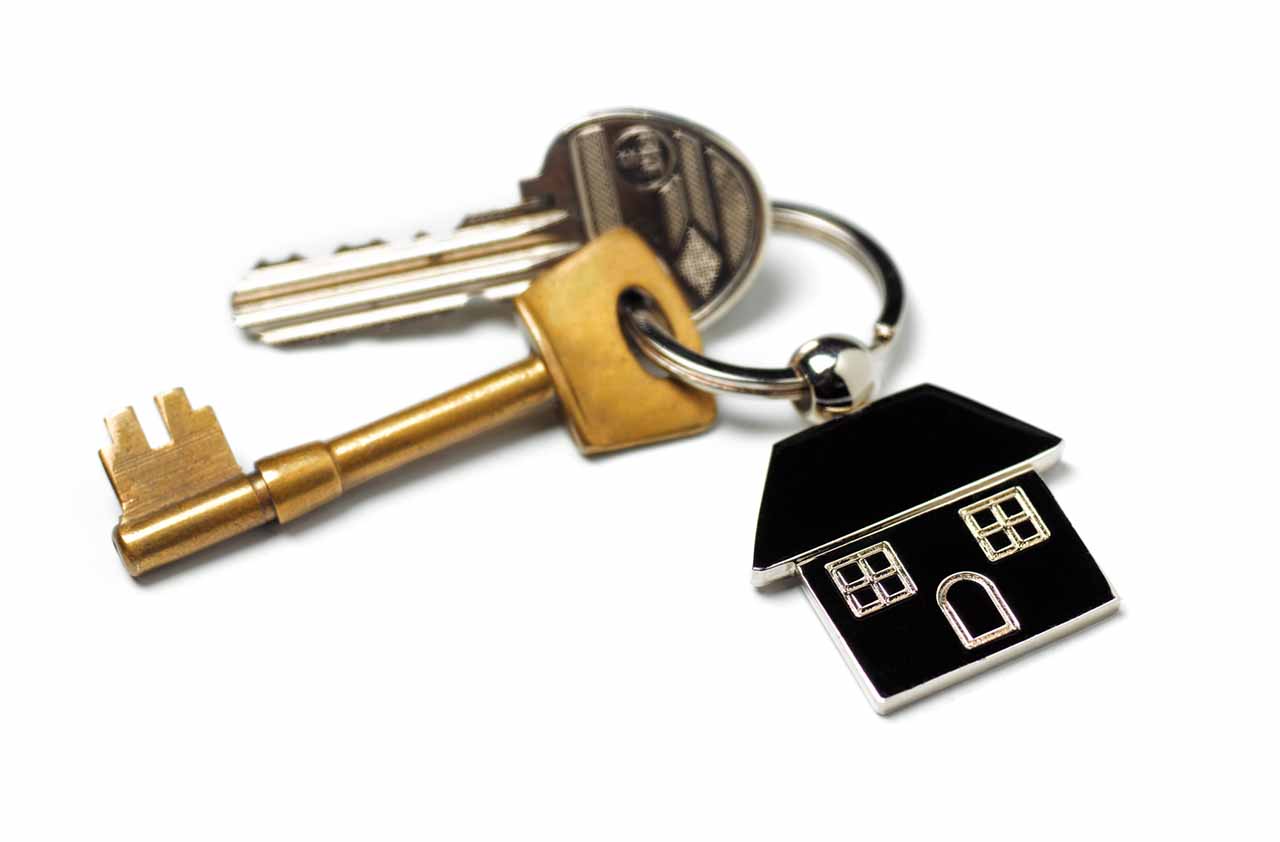You Can Still Buy and Sell a Home During the Coronavirus Outbreak
But you’ll have to jump through some hoops to close the deal.


Profit and prosper with the best of Kiplinger's advice on investing, taxes, retirement, personal finance and much more. Delivered daily. Enter your email in the box and click Sign Me Up.
You are now subscribed
Your newsletter sign-up was successful
Want to add more newsletters?

Delivered daily
Kiplinger Today
Profit and prosper with the best of Kiplinger's advice on investing, taxes, retirement, personal finance and much more delivered daily. Smart money moves start here.

Sent five days a week
Kiplinger A Step Ahead
Get practical help to make better financial decisions in your everyday life, from spending to savings on top deals.

Delivered daily
Kiplinger Closing Bell
Get today's biggest financial and investing headlines delivered to your inbox every day the U.S. stock market is open.

Sent twice a week
Kiplinger Adviser Intel
Financial pros across the country share best practices and fresh tactics to preserve and grow your wealth.

Delivered weekly
Kiplinger Tax Tips
Trim your federal and state tax bills with practical tax-planning and tax-cutting strategies.

Sent twice a week
Kiplinger Retirement Tips
Your twice-a-week guide to planning and enjoying a financially secure and richly rewarding retirement

Sent bimonthly.
Kiplinger Adviser Angle
Insights for advisers, wealth managers and other financial professionals.

Sent twice a week
Kiplinger Investing Weekly
Your twice-a-week roundup of promising stocks, funds, companies and industries you should consider, ones you should avoid, and why.

Sent weekly for six weeks
Kiplinger Invest for Retirement
Your step-by-step six-part series on how to invest for retirement, from devising a successful strategy to exactly which investments to choose.
Spring is usually the busiest time of year for real estate. It’s when house hunters and home sellers come out of hibernation mode and descend on the market in droves. But this year—in the era of COVID-19—is different.
The coronavirus outbreak has rocked the economy and upended many industries, including real estate. As Americans across the country are sheltering at home, many home buyers are left wondering: Should I buy a home now, or wait until quarantine measures loosen and the economy picks up again? The same goes for sellers wondering when they should list their home.
The real estate market is still active; most states have deemed the real estate industry an essential business. But the market is slowing. In March, 5.3 million existing homes were sold (down 8.5% from February), and 627,000 new homes were sold (a 15.4% decrease). And in an April survey of real estate agents by the National Association of Realtors (NAR), 90% of agents reported a decline in home buyer interest because of coronavirus fears. In addition, 80% said they saw fewer houses on the market.
From just $107.88 $24.99 for Kiplinger Personal Finance
Become a smarter, better informed investor. Subscribe from just $107.88 $24.99, plus get up to 4 Special Issues

Sign up for Kiplinger’s Free Newsletters
Profit and prosper with the best of expert advice on investing, taxes, retirement, personal finance and more - straight to your e-mail.
Profit and prosper with the best of expert advice - straight to your e-mail.
“We’ve seen some buyers put the brakes on their house search because they’ve lost income or because their financial situation has changed,” says Megan Aitken, a real estate agent in Middletown, Del. “We’ve also seen a number of sellers choosing to post-pone putting their house on the market because they don’t want to risk increased exposure to the coronavirus.”
The soaring jobless rate is also giving sellers pause: “A major concern of sellers right now is the risk of [buyers] losing their income prior to closing,” says Alicia Stoughton, a real estate agent and designer in Cincinnati.
But with mortgage rates still sitting at record lows—the average for a 30-year fixed-rate mortgage was 3.3% in mid April, Freddie Mac reported—buyers have incentive to stay in the market. (Low rates have also sparked a rush to refinance; see below.)
Tips for Buyers
Though fewer people are shopping for homes, buyers in many cities are still facing stiff competition due to housing shortages. “Because many sellers who planned to list this spring are holding off, inventory is even lower than it would be,” Stoughton says. “Make sure to work with an agent who is willing to work harder to find off-market listings,” she advises.
Also, getting preapproved before you make an offer on a house is a must. You don’t have to leave home to get preapproved; you can submit an application online or over the phone. And if you’re in a hurry, applying with an online mortgage company can help you speed through the application process. For example, Quicken Loans’ Rocket Mortgage says it can approve borrowers in as little as eight minutes.
Still, it’s worth shopping around to find a low rate. “I haven’t seen such differences among rates from lender to lender in my 35-year history of working in the mortgage business,” says Glenn Brunker, of Ally Home.
It’s also wise to talk to several real estate agents before you choose one. Aitken recommends that buyers have a video consultation with an agent to establish a human connection. “You want an agent who knows your needs and will advocate for you,” she says.
Virtual home tours and live-streamed open houses are replacing in-person showings. Nearly three-fourths of real estate agents in the NAR survey said they’d seen home sellers stop holding open houses.
Home buyers must adapt, says Cara Ameer, a real estate agent in Ponte Vedra Beach, Fla. “A listing of mine in mid March went under contract purely by the video that I posted online with the listing,” she says. If you tour a house in person, make sure to wear protective gear, such as a face mask and gloves.
To close on time, consider opting for a 60-day closing period instead of the more typical 30-day or 45-day close, says Kevin Schatz, a loan officer at Santa Ana, Calif.–based Caliber Home Loans. Because of the recent surge of refinance applications, your lender may need a little more time to approve your loan than it would during normal times. Also, having a longer closing gives you some flexibility when scheduling a settlement date with your title company. Some title companies are doing fewer closings because they’ve laid off or furloughed employees.
Protocols for home appraisals have also changed. Fannie Mae and Freddie Mac, the government-sponsored mortgage giants, have directed mortgage lenders to reduce the need for appraisers to perform in-home inspections, allowing greater flexibility for drive-by appraisals for conventional loans. (FHA mortgages still require an in-home appraisal.)
Home inspections are being per-formed without home buyers tagging along with the inspector—although some inspectors are using video chat-ting apps to let buyers join them for the inspection remotely in real time.
If it’s allowed in your state, consider doing an “e-closing,” a settlement process in which you sign closing documents electronically.
Tips for Sellers
More than ever before, “what’s going to set listings apart is how homes are presented online,” Aitken says. Professional photos and staging are a must; without them, your online listing can pale in comparison with your competition. Most stagers charge between $150 and $600 for a two-hour consultation, and then an additional $500 to $600 per month for each room, according to HomeAdvisor. But it pays off: Research shows staged homes sell quicker and for more money than un-staged homes.
To make your home stand out, consider adding high-tech features to your listing, such as a video or 3-D tour of your home, or drone footage.
Many home buyers still want to take an in-home tour before they make an offer. “If you’re okay with letting people into your home, turn all the lights on and leave all doors open so that you can minimize people having to touch things in your home,” says Ameer. For her listings, Aitken puts a basket of shoe covers, latex gloves and sanitizing wipes by the front door for prospective home buyers to use.
Finally, don’t overprice your home. Many buyers are clamping down on their finances, and a lot of shoppers are less willing to offer above list price for homes. A lot of buyers are also wary of stretching their budgets, because the coronavirus may put a dent in home price gains this year.
Refinancing: Prepare to Be Patient
With average rates for a 30-year fixed-rate mortgage drifting toward 3%, it’s a good time to consider refinancing. A refi often makes sense if your loan rate is more than one percentage point above current rates. You can use The Mortgage Professor’s refinance calculator to plug in the details of both your current mortgage and your new loan to see how long you’d have to stay in your home to start saving money.
But don’t expect lenders to return your calls immediately. During the final week of March, refinance applications were up 168% compared with a year ago, according to the Mortgage Bankers Association (MBA). Lenders are taking longer to process refinances, given the boom in applications, and a lot of offices are closed, which can extend turnaround times, says Steve Kaminski, head of U.S. Residential Lending at TD Bank.
“Because of the unprecedented volume of refinance applications that we’re seeing, some lenders are taking 120-plus days to complete a refinance,” says Glenn Brunker, of Ally Home. Prior to COVID-19, he says, a mortgage refinance took about 40 to 45 days to complete.
Ask lenders for a 120-day rate lock instead of the more typical 30 or 60 days. Try to get a float-down lock, which allows you to nab a lower mortgage rate if rates fall within a specific period after your loan is approved. (Traditionally, lenders charge a fee for a float-down, but some may be willing to waive it in today’s climate.)
Because mortgage rates can vary significantly from lender to lender, Brunker strongly recommends refinancers obtain quotes from at least three mortgage companies. You may also want to wait a few months to shop for a refi. In a down economy, rates won’t go any higher, and there’s a good chance they will drop further. The spread between yields on the 10-year Treasury note and the average 30-year mortgage rate is higher than usual because with business booming, many lenders are quoting higher rates.
Profit and prosper with the best of Kiplinger's advice on investing, taxes, retirement, personal finance and much more. Delivered daily. Enter your email in the box and click Sign Me Up.

Daniel Bortz is the Personal Finance Editor at AARP and is based in Arlington, Va. His freelance work has been published by The New York Times, The Washington Post, Consumer Reports, Newsweek, and Money magazine, among others.
-
 Dow Adds 1,206 Points to Top 50,000: Stock Market Today
Dow Adds 1,206 Points to Top 50,000: Stock Market TodayThe S&P 500 and Nasdaq also had strong finishes to a volatile week, with beaten-down tech stocks outperforming.
-
 Ask the Tax Editor: Federal Income Tax Deductions
Ask the Tax Editor: Federal Income Tax DeductionsAsk the Editor In this week's Ask the Editor Q&A, Joy Taylor answers questions on federal income tax deductions
-
 States With No-Fault Car Insurance Laws (and How No-Fault Car Insurance Works)
States With No-Fault Car Insurance Laws (and How No-Fault Car Insurance Works)A breakdown of the confusing rules around no-fault car insurance in every state where it exists.
-
 9 Types of Insurance You Probably Don't Need
9 Types of Insurance You Probably Don't NeedFinancial Planning If you're paying for these types of insurance, you may be wasting your money. Here's what you need to know.
-
 Could Tax Savings Make a 50-Year Mortgage Worth It?
Could Tax Savings Make a 50-Year Mortgage Worth It?Buying a Home The 50-year mortgage proposal by Trump aims to address the housing affordability crisis with lower monthly mortgage payments. But what does that mean for your taxes?
-
 Amazon Resale: Where Amazon Prime Returns Become Your Online Bargains
Amazon Resale: Where Amazon Prime Returns Become Your Online BargainsFeature Amazon Resale products may have some imperfections, but that often leads to wildly discounted prices.
-
 The Mansion Tax: Do You Need to Worry About It?
The Mansion Tax: Do You Need to Worry About It?Mansion Tax If you’re in the market for a high-value home, you may face an additional tax rolled into your closing costs.
-
 Roth IRA Contribution Limits for 2026
Roth IRA Contribution Limits for 2026Roth IRAs Roth IRAs allow you to save for retirement with after-tax dollars while you're working, and then withdraw those contributions and earnings tax-free when you retire. Here's a look at 2026 limits and income-based phaseouts.
-
 How to Search For Foreclosures Near You: Best Websites for Listings
How to Search For Foreclosures Near You: Best Websites for ListingsMaking Your Money Last Searching for a foreclosed home? These top-rated foreclosure websites — including free, paid and government options — can help you find listings near you.
-
 Luxury Home Prices Rise as the Rich Dodge High Mortgage Rates
Luxury Home Prices Rise as the Rich Dodge High Mortgage RatesLuxury home prices rose 9% to the highest third-quarter level on record, Redfin reports, growing nearly three times faster than non-luxury prices.
-
 Four Tips for Renting Out Your Home on Airbnb
Four Tips for Renting Out Your Home on Airbnbreal estate Here's what you should know before listing your home on Airbnb.